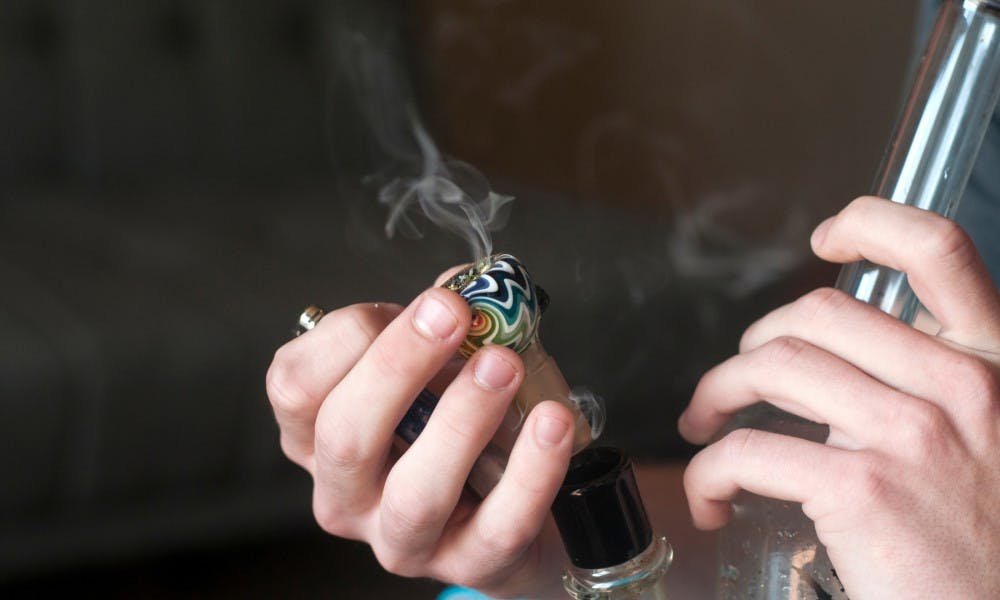Ever since the Michigan Medical Marijuana Act was passed in 2008, Michigan courts have made rulings in medical marijuana cases that some state representatives say restrict patient’s ability to get their medicine.
Because of this, legislators in the House of Representatives are working to push bills through the legislature that would amend the Medical Marijuana Act.
HB 4209, sponsored by Rep. Mike Callton, R-Nashville, originally only worked to add language to the Act that would allow for local municipalities to create commercial dispensaries in their communities, where people could go to get medicinal marijuana, as well as create certain standards for packaging, labeling and other steps in the process.
Callton said currently, dispensaries located in cities across Michigan are against the law, and if they are open, it is because their local government has chosen to tell their police not to shut it down.
“Right now, you can grow your own or have someone else grow it for you,” Callton said. “A dispensary is in a commercial industrial area, medicine is tested, there’s background checks on people working there and also it gives the municipalities some control over whether they have one or not, because it’s not right for every community.”
Rep. Jeff Irwin, D-Ann Arbor said that this precedent was set by the courts in the case of State of Michigan v. McQueen back in 2013 when the courts ruled medical marijuana dispensaries were not protected by the MMMA.
Changes to the medical marijuana act
Within the last few weeks, Callton’s bill has seen changes made to it, that would make it the overall regulatory framework for medical marijuana growers, processors, secure transporters, provisioning centers, and safety compliance facilities — which has raised some concern from other representatives.
The first big change that was made to the bill is that an 8 percent tax would be imposed on all sales of medical marijuana from provisioning centers.
Callton’s bill would also require people to have a license to be a grower, laboratory worker, a processor, a retailer and a license to be a transfer company. He estimates the taxation of the product, could bring the state $250 million per year. That money, he said, would likely go towards the policing of medical marijuana and the general fund.
Irwin, a co-sponsor of the originally proposed bill said he sees these changes as putting too many regulations on medical marijuana.
“Usually we don’t tax medicine in Michigan,” Irwin said. “So while I support and have even proposed some reasonable taxation on the adult-use of marijuana in the non medical area — I think it’s problematic to tax medical marijuana when you don’t tax more dangerous, addictive, toxic and often prescribed medications.”
A proposal to track medical marijuana
In addition to the tax, another change that was made, HB 4827, sponsored by Rep. Klint Kesto R-Commerce Township, would create the Marihuana Tracking Act, which would require a system to track marijuana grown, processed, transferred, stored, or disposed of under HB 4209.
Irwin said these changes were proposed as a way of preventing marijuana from leaking out into the black market, but added that having such strict and seemingly aggressive regulations, such as a seed-to-sale tracking system, could drive more people towards a black market.
“I think that’s ironic, because all of these changes provide an incredible advantage for the illegal market,” Irwin said. “All of these changes just add additional cost and additional useless red-tape bureaucratic nonsense to medical cannabis, and in doing so, you provide a huge financial advantage to the illegal market, and I think that’s a big mistake”
Jamie Lowell, the deputy director of MI Legalize, which is circulating a marijuana legalization ballot proposal, said he thinks the changes that have been made to the bill are the reason people should not have faith in the legislature.
Lowell said the bill started off with a basic premise that would allow for caregivers who have had a very successful harvest to go to a central location, a provisioning center, and sharer their product with caregivers who have not been as fortunate with their harvest.
“A central location for patients and caregivers to meet each other, for there to be an exchange of education — things that were working already in some places around the state,” Lowell said. “It has now mutated into something where caregivers can’t even participate anymore.”







